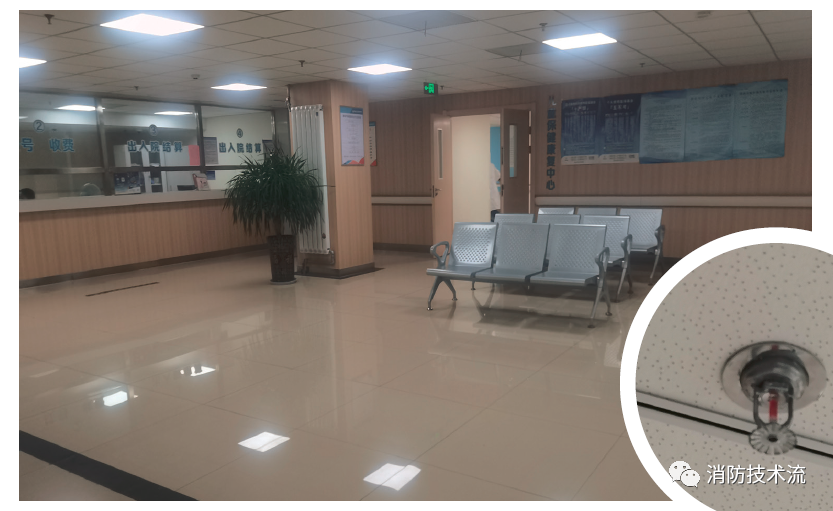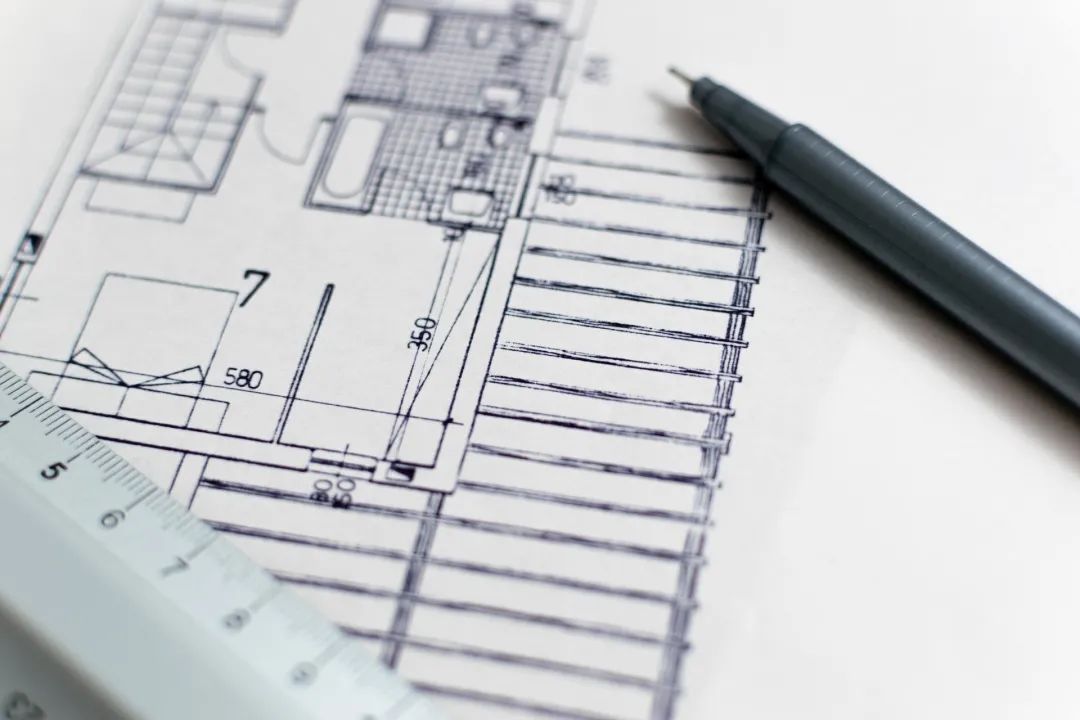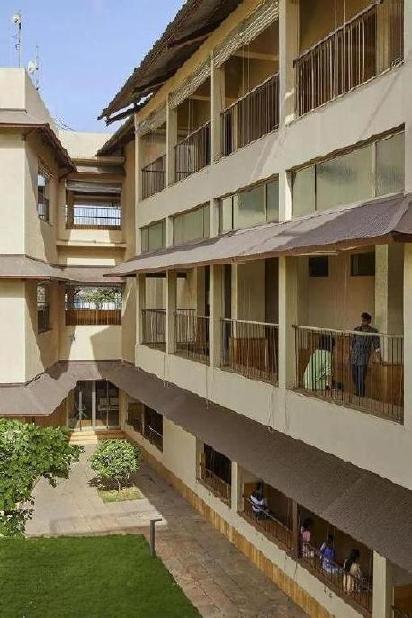The evacuation staircases are open staircases.
The reconstruction of smoke control and exhaust system is very difficult.
According to the standard requirements, the natural ventilation and smoke exhaust conditions of some building corridors after reconstruction are limited, and mechanical smoke exhaust system needs to be added.
Due to the change of the use function of the reconstruction part of the building and the long construction time of the original building, the building status can not meet the requirements of the current standards and specifications.
The reconstruction of enclosed staircases The evacuation staircases of the original building are open staircases, and the current specifications require that the evacuation staircases of medical buildings should be closed staircases.
During the reconstruction, effective measures were taken for key points such as building fire protection, fire fighting facilities and safe evacuation to ensure that the building fire protection design met the current standards and specifications.
Specific measures for system installation include: opening holes at necessary locations to install smoke exhaust pipes, and plugging after construction (Figure 4-5)..
After the construction is completed, the hole is tightly sealed for fire protection.
(2) Reconstruction overview The original building was designed in 2003, with 6 floors above the ground and 1 floor underground.
4.
After accounting for the transformation of smoke control system, mechanical smoke exhaust system is added in the corridor, and the smoke exhaust outlet is shown in Figure 4-4.
The fire fighting facilities in the building are equipped with indoor hydrant system, automatic sprinkler system, automatic fire alarm system and emergency evacuation indication system.
The use function of the 1-2 floors is furniture shopping mall, the 3-6 floors are offices, and there are 6 evacuation staircases in total, of which 3 are specially used for parts above the 3 floors.
In order to ensure that the system can meet the requirements of standards and specifications after access, the pipeline pressure test was conducted for the fire hydrant system pipeline of the whole building according to the construction requirements of the fire hydrant system pipeline to ensure that the construction quality of the fire hydrant system pipe network meets the requirements of the specifications.
Fire hydrant system transformation The original building is equipped with a fire hydrant system, but the original fire hydrant system cannot meet the relevant requirements of the current specification due to the changes in the building use function and building layout.
The evacuation staircase needs to be transformed.
(2) Countermeasures 1.
The rehabilitation hall on the 6th floor is a tall space, which is difficult to construct.
After the transformation, the use function of the 1-2 floors remains unchanged, the use function of the 3 floors is diagnosis and treatment office, and the use function of the 4-6 floors is rehabilitation ward.
1、 Project overview (I) Reconstruction background The fire protection reconstruction project of a hospital is a reconstruction project that changes the office part of the office and commercial comprehensive project into medical treatment.
The total building area of the transformation part is 6221.10m2.
The construction was completed by erecting multi-layer scaffolding on the site.
The reconstruction part of the fire hydrant system connected to the original fire hydrant system needs to go through the wall, and the pipeline pressure test is required after the connection.
5.
During the preparation of the construction scheme, construction procedures were fully considered, and components such as sprinkler system pipes, nozzles and suspended ceilings were reasonably installed (Figure 4-2).
The automatic sprinkler system involves the linkage with the automatic alarm system (Figure 4-3).
Due to the large sectional area of the smoke exhaust pipe, the connection between the shaft opening and the pipe is a difficult point in the construction process, and the installation height of the air duct fan is high, and the on-site hoisting conditions are limited.
4.

2.
4-1).
After strict construction organization design, installation, construction, inspection and calibration, the entire system has been jointly debugged for many times to ensure the interlocking function of the automatic fire alarm system and the automatic sprinkler system.
Therefore, on the basis of the original building, this reconstruction uses the measures of fire-resistant components and fittings separation and installation of Class B fire doors to transform the staircases into closed staircases.
The pipes of the automatic sprinkler system need to be connected to the original system fire pump room, which also involves the opening construction of the wall structure.
The reconstructed system needs to be connected to the original fire hydrant system pipe network.
After full investigation and research on the reconstruction of automatic sprinkler system, the original automatic sprinkler system in the wards, offices, corridors and other areas of the reconstructed part shall be removed and rearranged.
After fully evaluating the safety of the building structure and opening construction, strict fireproof sealing was carried out.
According to the system requirements, a wet alarm valve is added in the underground fire pump room.
Before the reconstruction, the building layout and fire-fighting and rescue facilities were evaluated and demonstrated according to the current standards and specifications.
However, the evacuation staircase of the original building is an open staircase, and the current specification requires that the evacuation staircase of the medical building should be a closed staircase.
The building height is 23.75m, the building area is about 16000 m2, and the total investment is about 20 million yuan.
After reconstruction, the emergency exits and evacuation stairs in the rehabilitation ward are still set and used independently, that is, floors 3-6 are completely separated from the unmodified floors 1-2.
In the process of reconstruction and system access, some pipes need to be opened in the wall structure.
The original building is equipped with a fire pump room and a fire control room for the reconstruction of the fire hydrant system.
Some pipelines are set by open laying method due to conditions (Fig.
3.
The key and difficult points of the transformation and the countermeasures are summarized as follows: (I) The key and difficult points of the transformation are as follows: 1.
After effective separation, the enclosed stairwell meets the specification requirements.
2.

2、 Key points, difficulties and countermeasures of reconstruction Due to the change of local use function of the building, the existing conditions of the building are difficult to meet the requirements of standards and specifications for medical buildings.
The construction of fire fighting facilities is not independent, and it needs to be coordinated with decoration works, electrical installation works, etc.
Because all systems of the project have been transformed in accordance with the requirements of the current standards and specifications, the automatic fire alarm system plays a role in connecting the linkage response of all systems, which needs to be targeted for transformation, and the relevant linkage logic relationship also needs to be re debugged.
3.
The automatic fire alarm system needs to be completely transformed.
Automatic sprinkler system reconstruction The original building is equipped with an automatic sprinkler system, but the original system pipes are old and the setting does not meet the requirements of the standards and specifications used as a medical building after reconstruction, which needs to be partially removed and reinstalled.
The original building has three evacuation staircases located in the transformation area, two evacuation staircases on the north side are directly connected to the outside, and the staircase on the south side uses an expanded closed staircase, which can meet the requirements for the number of emergency exits of the transformation part.






